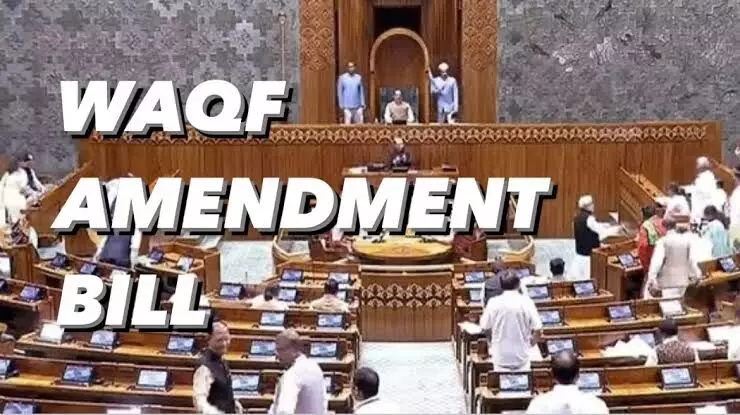Telangana Waqf Board rejects proposed Waqf Amendment Bill 2024 over autonomy concerns
Telangana is the first state in the country to pass a resolution rejecting the Waqf Amendment Bill 2024
By Kaniza Garari
Representation Image of Waqf Amendment Bill 2024
Hyderabad: Telangana Waqf Board (TWB) has passed a resolution to reject the Waqf Amendment Bill-2024, deeming it ‘harmful, damaging and made to destroy the autonomy of Waqf Board.’
Telangana is the first State in the country to pass a resolution rejecting the bill. The resolution of TWB will soon be forwarded to a joint Parliamentary committee overseeing the issue.
In a meeting called by the board, TWB chairman Syed Azmatullah Hussain, board members, AIMIM member of Parliament Asaduddin Owaisi and others discussed and passed the resolution to reject the Waqf Bill.
Why did the Waqf Board reject the bill?
The board stated that the reasons for rejecting the bill as follows:
- The bill was prepared to destroy the autonomy of the Waqf Board.
- The bill aims to give control of the Waqfs to collectors who will be free to claim and determine the property as that of the government.
- The role of mutawallis as protectors of the property will be removed as they will have to follow orders from the collectors.
- The bill will destroy the Waqf council and the board’s organisational structure.
- Introducing two non-Muslim members will leave scope for the council and board to be dominated by non-Muslims.
- The bill is against the country’s federal nature as the control of the State government will be diminished while increasing the authority of the Central government.
Drawing parallels with the Hindu Endowments Act
Referring to the Hindu Endowments Act, the members pointed out that the Dharmic Parishad of the Hindu Endowments Act does not allow a non-Hindu member to hold executive posts. Whereas, in the Waqf Board, the chief executive officer can be a non-Muslim.
Similarly, there is no provision for the role of collectors in the Hindu Endowments Act currently being managed only by Hindus.
Tribunal issues
The board said that in the proposed Waqf Amendment Bill-2024 there is a systematic effort to dilute and weaken the Waqf Tribunal.
However, there is no similar provision in the Hindu Endowments Act. The argument by members was that changes in Waqf are not acceptable when there are no similar clauses in acts of other religions and their religious properties.
“We have unanimously decided to reject the proposed bill. Our joint statement has clearly pointed out that the proposed bill is a retrograde step to target the Muslim community and the Waqf institutions. We condemn this type of divisive agenda being pushed through this controversial bill by the Government of India,” said TWB chairman Syed Azmatullah Hussain.
Waqf properties in Telangana
Telangana is the fifth State with the highest Waqf properties, more than 77,000 acres.
As many as 33,000 properties house educational institutions, masjids, dargahs and idgahs. As much as 70 per cent of land encroachment (white collar encroachment) has been recorded in Waqf properties even as legal disputes are going on.
The highest number of Waqf properties are found in Medak, Rangareddy, Adilabad and Hyderabad districts.